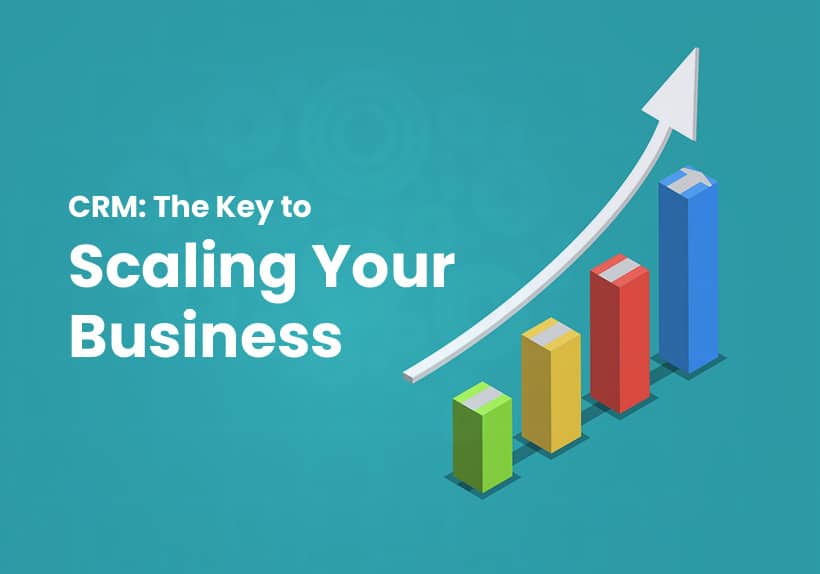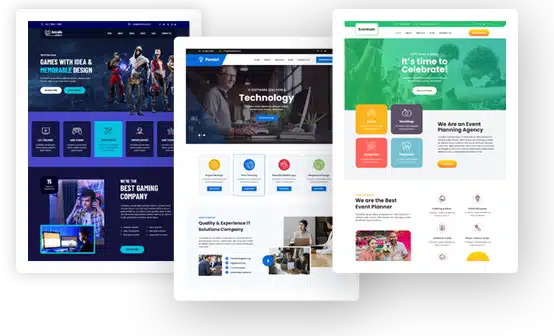CRM: The Key to Scaling Your Business

Growing at the right speed and effectively managing customer relationships are some of the greatest challenges you’ll face as you strive to build a sustainable business. But luckily, the answer may lie in CRM (Customer Relationship Management) software. Implementing this type of system can be essential for helping businesses scale efficiently by providing an organized platform for tracking customer interactions and keeping everyone on your team connected. This blog post explores how utilizing a CRM can help unlock new opportunities that will support long-term growth plans with ease.
What is CRM?
CRM stands for customer relationship management. CRM software is a great tool that can assist businesses in quickly scaling their operations. The system is intelligent and is designed to capture customer data, automate processes and simplify the customer experience. This software helps businesses close deals faster, retain customers longer, and build stronger relationships by giving them greater visibility into the customer journey.
With CRM, companies can access customer information in an organized manner, strategically target customers for marketing campaigns, and improve customer service to create higher satisfaction levels. By leveraging a comprehensive CRM platform, businesses of any size can confidently scale up their operations and achieve maximum return on investment.
How Does CRM Help Businesses Scale?
Customer Relationship Management is invaluable in scaling businesses as it automatically allows teams to track and manage customer interactions. It’s also a great way to have visibility into sales trends and patterns, provide employees with contextual customer data whenever they interact, and enable everyone to access the necessary resources through one centralized platform. According to the Small Business HQ guide, evaluating a CRM before selecting one for your business is essential.
Additionally, CRM software can provide the ability for businesses to anticipate customer needs better; it does this by having all conversations and activities, including emails, calls, notes, and tasks, recorded and tracked in one integrated system.
Therefore when customers reach out with questions or issues, valuable insights from previous customer support interactions will be readily available. With a CRM system, businesses can identify expansion opportunities and continuously build relationships with customers that result in long-term growth. Whether you are using CRM software for a gym, or for a home renovation business – it is an essential tool for any business owner.
What Are the Benefits of Using CRM?
There are many benefits of using CRM. Through automation functionality with segmentation capabilities, businesses can efficiently target customer segments and deploy campaigns tailored to specific audiences – all in one place.
Furthermore, CRM helps businesses optimize customer interactions by tying together disparate data sources across multiple channels. By leveraging this data-rich database of customer information through better segmentation of customers and campaigns, businesses can increase their effectiveness in the market at large. Database versioning that extends the CI/CD pipeline ensuring smoother deployments and fewer integration issues. By integrating database versioning into your continuous integration and continuous deployment processes, you can enjoy significant benefits, particularly for CRM systems. When businesses have a better understanding of their customer’s needs and preferences, they can provide them with better service, leading to improved customer satisfaction.
By automating their sales and marketing processes, businesses can increase their sales without hiring additional staff. Additionally, by segmenting their customers and targeting them with more personalized marketing messages, businesses can improve customer satisfaction index and increase the likelihood that they will make a purchase.
Businesses can save money using a CRM system on paper records and manual data entry. Additionally, by automating their sales and marketing processes, businesses can save money on staff costs.
How Can Businesses Implement CRM?
CRM software, like Teamgate, provides businesses valuable insights into customer preferences, behaviors, patterns, and organized data storage for marketing campaigns, customer service automation, and sales support. Before implementing a CRM system, businesses should start by assessing their current state of customer data and evaluating the best approach to organize and store it.
Once the data has been collected, you can use the CRM software to generate targeted campaigns with automatic follow-ups, plus acquire analytics related to the performance metrics of these campaigns. There are several ways that businesses can implement CRM.
Businesses can implement a CRM system in-house by purchasing software and training stuff on how to use it. This option may be best for businesses with the resources to invest in an in-house team.
Businesses can also choose to outsource their CRM needs to a third-party provider. This option may be best for businesses that need more resources to invest in an in-house team or want to focus on other areas of their business.
Cloud-based and Mobile CRM systems are becoming increasingly popular as they offer the flexibility to access customer data anywhere at any time. This option may be best for businesses that have employees who work remotely or that have multiple locations.
What Are the Best Practices for Using CRM?
All businesses should follow a few best practices for using CRM software to get the most out of their investment in the system. Ensuring all employees using the system have been properly trained on how to use it is key. Second, businesses should integrate their CRM system with other business systems, such as accounting, inventory management, and warehouse management systems to streamline operations and reduce data entry errors. Finally, businesses should regularly review their data to identify trends or patterns that they can use to improve their marketing and sales strategies.
Conclusion
Customer Relationship Management is key if you’re looking to scale your business. CRM allows you to manage customer data and convert leads into sales. By automating mundane tasks, you have free time to focus on scaling your business. And by understanding your customers better, you can create targeted marketing campaigns that will result in more sales.

